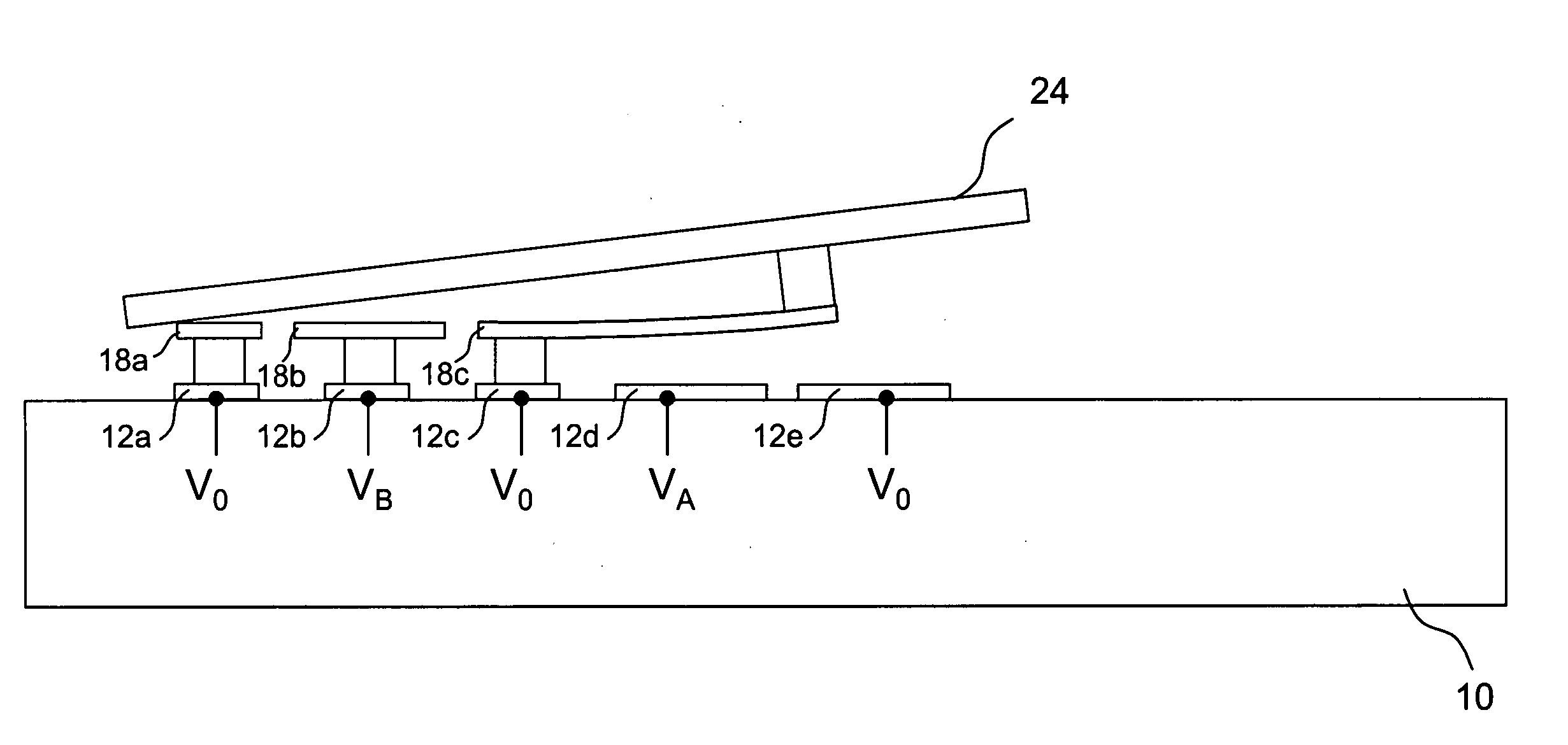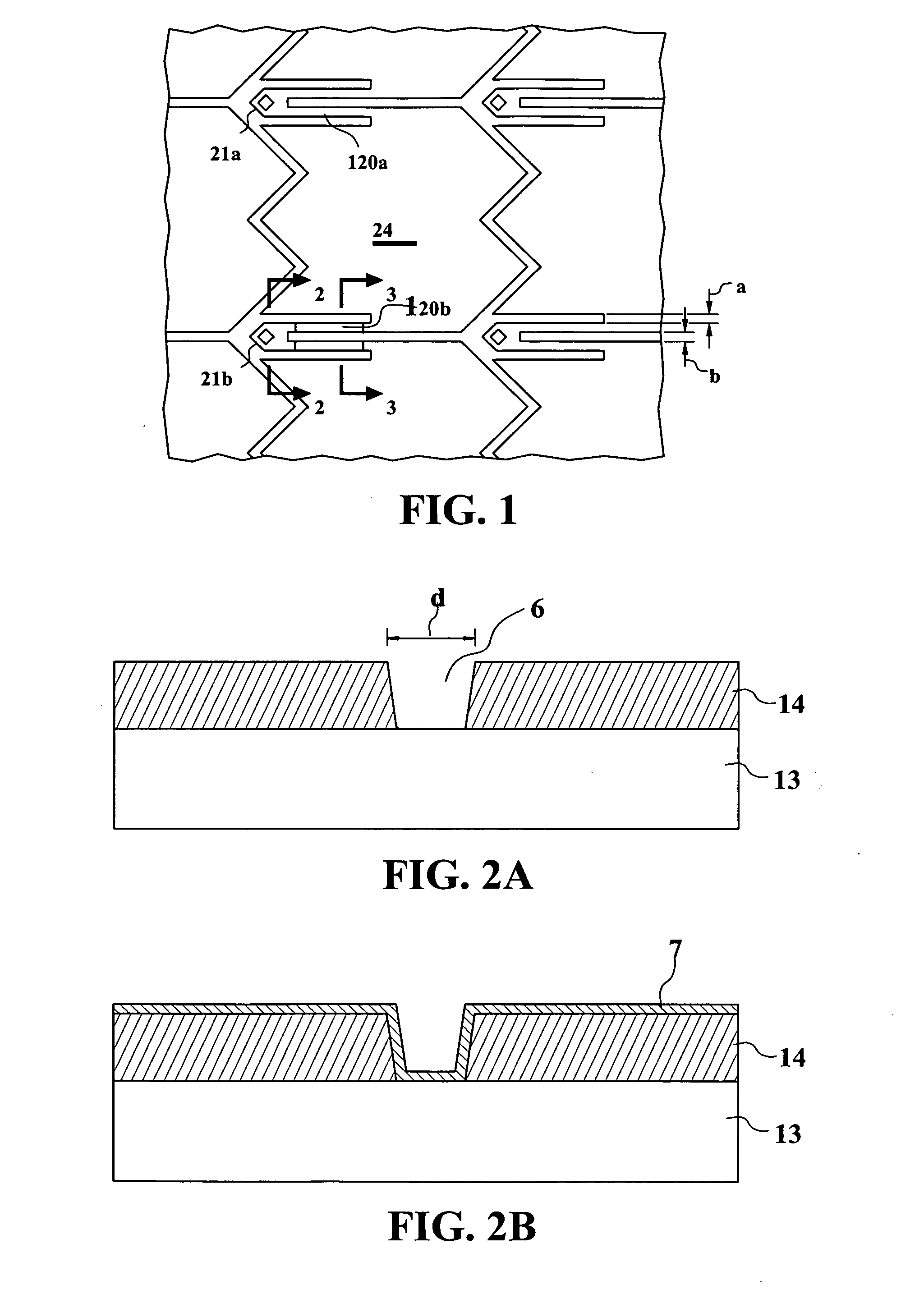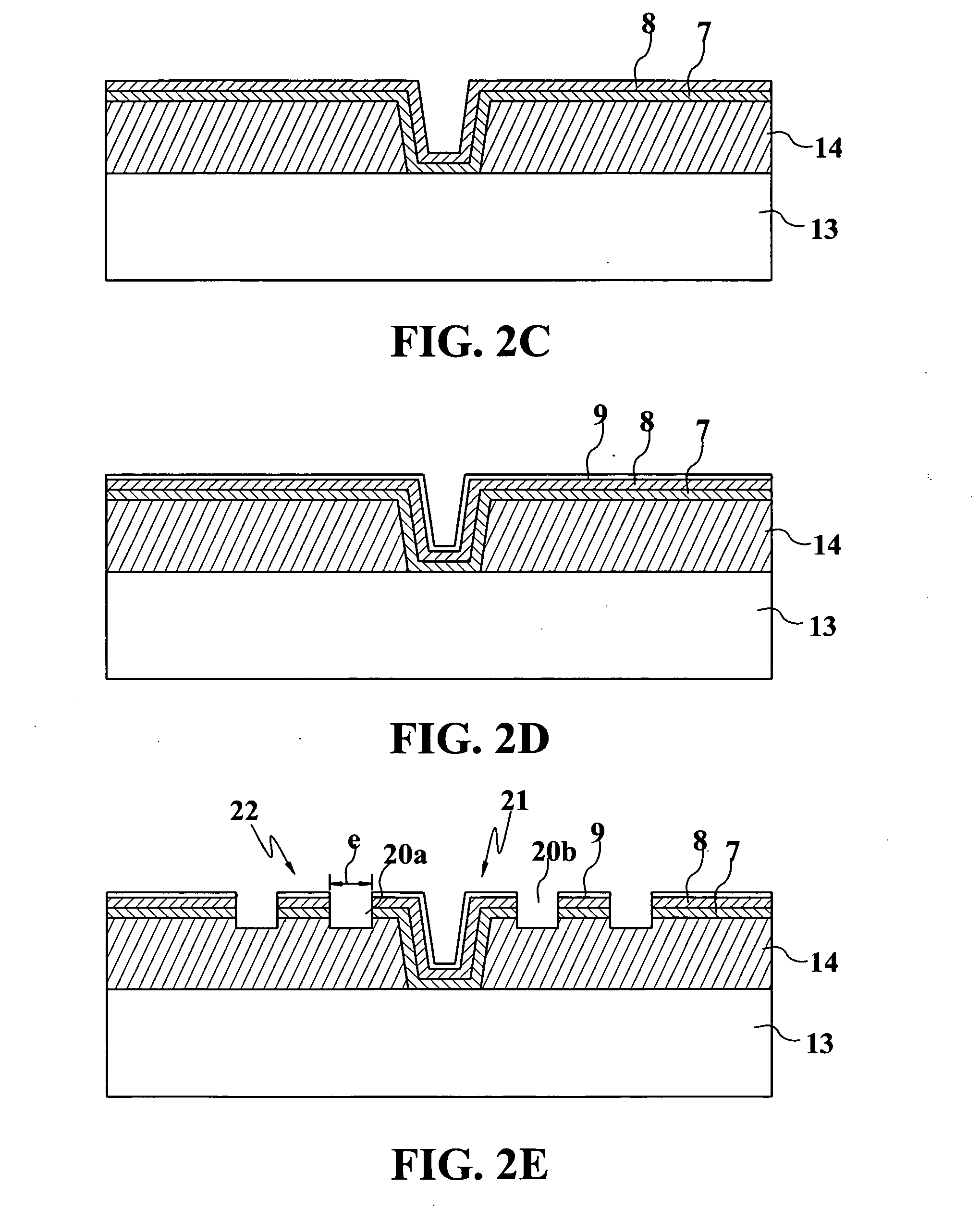Projection display
a projection display and display technology, applied in the field of projection displays, can solve problems such as light leakage into, and achieve the effects of reducing the contrast ratio of the micromirror, minimizing light diffraction, and minimizing the cost of illumination optics
- Summary
- Abstract
- Description
- Claims
- Application Information
AI Technical Summary
Benefits of technology
Problems solved by technology
Method used
Image
Examples
Embodiment Construction
[0055] Processes for microfabricating a movable micromirror or micromirror array are disclosed in U.S. Pat. Nos. 5,835,256 and 6,046,840 both to Huibers, the subject matter of each being incorporated herein by reference. A similar process for forming the micromirrors of the present invention is illustrated in FIGS. 1 to 3. FIG. 1 is a top view of one embodiment of the micromirrors of the present invention. As can be seen in FIG. 1, posts 21a and 21b hold micromirror plate 24 via hinges 120a and 120b above a lower substrate having electrodes thereon (not shown) for causing deflection of micromirror plate 24. Though not shown in FIG. 1, and as will be discussed further herein, thousands or even millions of micromirrors 24 can be provided in an array for reflecting light incident thereon and projecting an image to a viewer or target / screen.
[0056] Micromirror 24, and the other micromirrors in the array, can be fabricated by many different methods. One method is illustrated in FIGS. 2A ...
PUM
 Login to View More
Login to View More Abstract
Description
Claims
Application Information
 Login to View More
Login to View More - R&D
- Intellectual Property
- Life Sciences
- Materials
- Tech Scout
- Unparalleled Data Quality
- Higher Quality Content
- 60% Fewer Hallucinations
Browse by: Latest US Patents, China's latest patents, Technical Efficacy Thesaurus, Application Domain, Technology Topic, Popular Technical Reports.
© 2025 PatSnap. All rights reserved.Legal|Privacy policy|Modern Slavery Act Transparency Statement|Sitemap|About US| Contact US: help@patsnap.com



